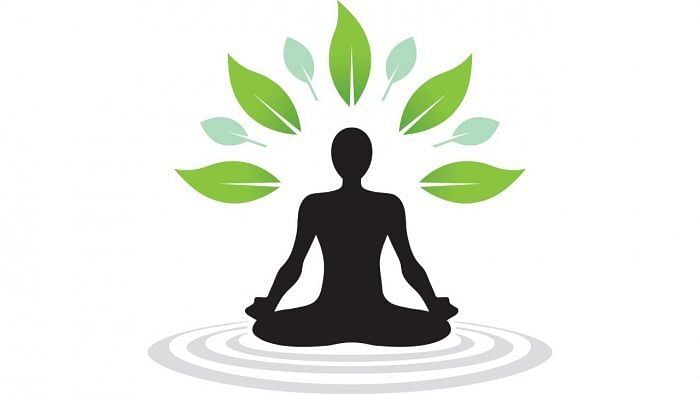
Oasis.
Credit: DH Illustration
The fifth chapter of the Bhagavad Gita speaks about two concepts ,‘Karmayoga’- doing ones duty with sincerity, without aspiring for the benefits alone, but rather as a service to society, as an offering to the divine and ‘Karmasanyasa Yoga’ – refraining from doing wrong, unnecessary and prohibited actions. The Gita postulates that of these two, man must first practice Karmayoga- doing his ordained duty. This should be followed by the second-Karmasanyasa Yoga, abstention from wrong actions. The Gita stresses on the importance of this methodical progression and explains it in the following manner.
Karmayoga brings about subtle changes in the practitioners attitude, mindset and outlook on life. As one progresses on this path of doing one’s best in his or her worldly duties, avoiding or at least reducing the element of greed and selfishness, trying to contribute one’s mite for the common good, one realises that the wants and desires one is clinging on to are not really worth running after and that there is more to life than just material pleasures. One experiences that ignoring the pull of the senses is not causing any trouble whatsoever, but in fact, one is more calm. At this stage, one can differentiate between desirable actions and unwanted actions (Karmasanyasa). Inner peace prevails.
The Gita says that this is due to the reduction in the quantum of accumulated mental predispositions- the Vasanas. The ego gets nullified gradually and the sense of ‘doer’ship, that “I am the doer” slowly withers down. There is an inner serenity when the mind is thus gradually purified and the mind can resist the pull of the senses in the form of temptations. Revered Swami Chinmayananda proffers a corollary to this when he says that this pull of the senses, the external distractions are the culprits while a person is engaged in meditation. This chain needs to be cut and the solution lies in Karmayoga, he says. Proceeding further, the Gita takes this concept to the next level as it highlights how Yogis, noble souls lead their lives. “They look like anybody else, they go about their normal human activities like eating, hearing, talking, seeing and so on, but they do it as detached onlookers, without any ego. They are like a lotus leaf, unmoistened by the water droplets on it. An Ayukta--a man without discernment and propelled by desires has no peace and thus is always agitated. Herein lies a lesson for ordinary mortals.